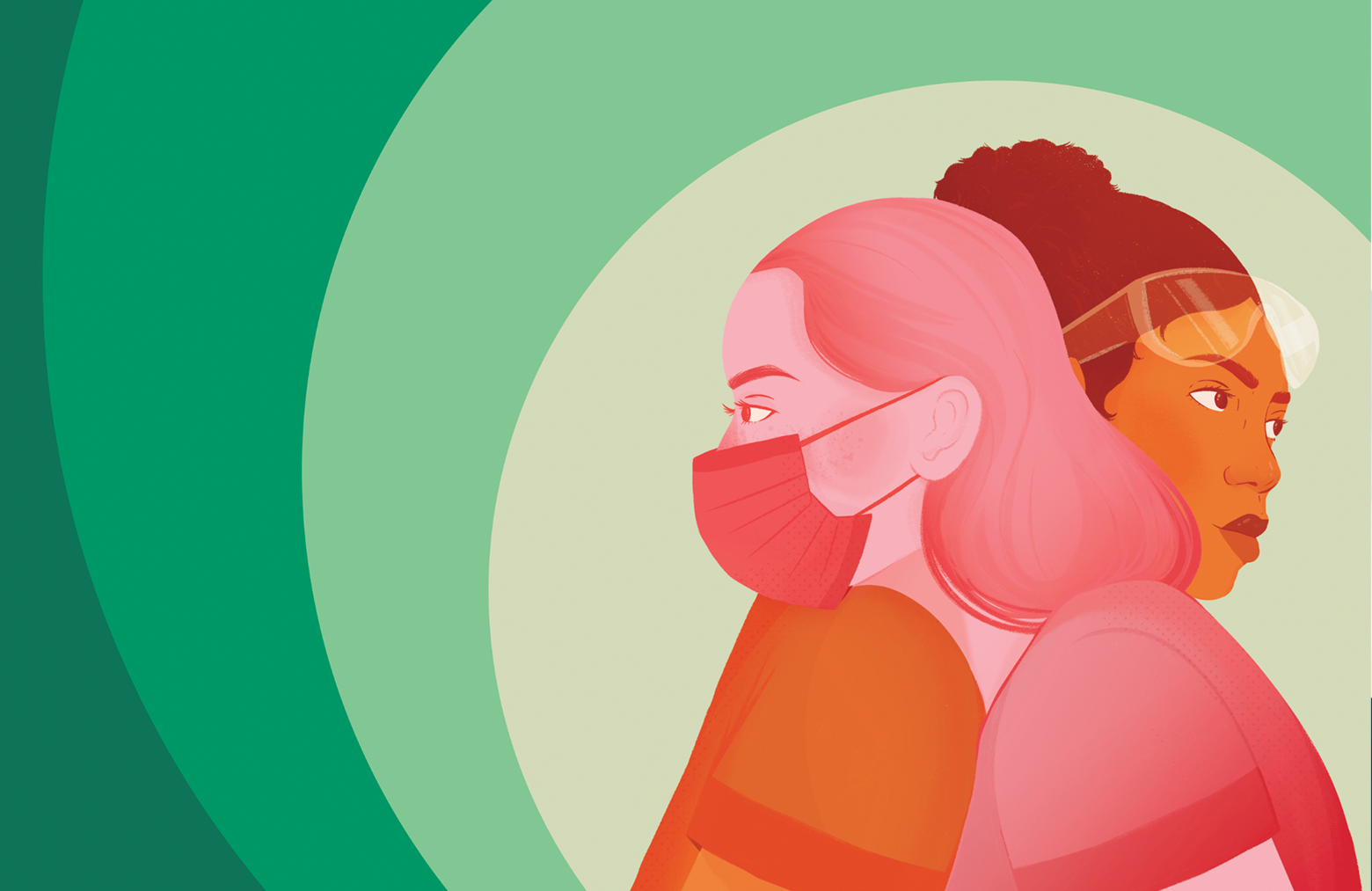As we celebrate our mothers and caregivers this Mother’s Day, we need to address the gendered catch-22 of motherhood, writes Paulette Senior. Philanthropy must move beyond the ethos of “motherhood as solution” or “motherhood as problem,” she says, and centre women’s humanity beyond their care work – and get ambitious about lightening their load.
Mother’s Day has social action roots.
In the United States in the mid-1800s, Mother’s Day focused on sanitation to curb high infant mortality. In 1872 New York City, Mother’s Day turned into a moment for anti-war observance. But after it was officially made a celebration of “mother love” in 1914, retail leaders like U.S. florists saw the opportunity, and memories of agitation for change began to fade into the background.
These conflicting expressions of what Mother’s Day means reflect a deeper contestation of motherhood itself. The drive to frame motherhood in our own image is long-standing. And that image may not have much to do with the experiences of mothers themselves, especially mothers who are Indigenous, Black, queer, trans, migrants, and facing any number of barriers to respect and respectability.
In a contemporary context, motherhood gets deified and debased, all at once. From motherhood myths of white nationalism to art traditions that worship motherhood while making it difficult to be an artist who is a mother to the veneer of the “mumfluencer” industry, motherhood is a conflicted place to be in.
In a contemporary context, motherhood gets deified and debased, all at once.
It’s no wonder mothers find themselves caught between it all: guilt and love, visibility and invisibility, worthiness and worthlessness. No wonder motherhood feels like a gendered catch-22. Just look at what they go through every day.
Mothers are tasked with the lion’s share of unpaid care and emotional support to children and other adults, as well as housekeeping like chores and shopping. The heavier unpaid workload likely applies to how work gets done in community spaces too, in neighbourhood, educational, and recreational spaces. Women volunteer more than men, especially millennial women, who are also more likely to care for young children.
Women and mothers carry Canada’s care economy, which Statistics Canada defines as the sector that provides paid and unpaid care work to children under the age of 15 and adults with long-term conditions and disabilities.
It’s by no means an insignificant segment of the overall economy. In 2015, unpaid household work represented $778.2 billion based on a gross opportunity-cost calculation.
Holding up the care economy is stressful. Women report more negative impacts of their caregiving responsibilities than men, such as tiredness, worry, and anxiety. They know lives depend on their sacrifice and provision.
A respondent to a Canadian Women’s Foundation survey of mothers and caregivers said this in a way that has reverberated in my mind. “I am at my limit,” she told us. “There is too much expected of people with dependents. You are burning out an entire generation of people.”
Another said, “I desperately need help at home to survive each day and to take care of a child with medical needs and an elderly parent with cancer and other chronic health conditions, both of whom need high levels of attention.”
Mothers certainly feel doubly pressed in the labour market. Mothers of children aged five and under have been tasked with taking the most time off for family responsibility leave. When the pandemic hit, their lost paid workdays shot up from 4.7 days in 2019 to 9.2 days in 2020. This number has not eased to pre-pandemic levels.
Lost workdays result in lost wages and lost opportunities to take on leadership and participate in mentorship, training, and group work. These are not inconsequential. They add up to good performance reviews, promotions and raises, and being viewed by your boss as a valuable team member. They add up to lost economic stimulus.
From a public policy perspective, our national childcare efforts have to ensure that the most vulnerable mothers and families benefit.
I imagine other mass impacts. Politicians and commentators bluster about declining birth rates and delayed parenthood trends. Perhaps the bind that women and gender-diverse people have to get into by becoming parents these days factors into their calculations. Perhaps it makes their life decisions even tougher to figure out.
In public discussions about motherhood choices, I simply don’t hear enough evidence-based support offered to diverse mothers and caregivers as they struggle with their disproportionate load.
From a public policy perspective, our national childcare efforts have to ensure that the most vulnerable mothers and families benefit. We have to fix our fractured care system, not just patch it up. Workers need better access to paid sick days and family responsibility leave.
We have to eliminate motherhood penalties. Gender pay gaps increase at the birth of a first child, and the motherhood earnings gap persists for at least five years after women return to work after childbirth.
Workplaces must take a transformative approach; they don’t need to wait for legislation to come into force. Flexible work models are often welcome for workers balancing caregiving responsibilities. Workplaces need advancement models that make pains not to punish mothers and offer robust paths to diversity in leadership.
What about the role of philanthropy?
Mothers and caregivers should not be positioned as a one-dimensional means to another end, such as child well-being or family economic security. A great deal of philanthropy revolves around the ethos of motherhood as solution or motherhood as problem, especially in poverty alleviation and health.
Philanthropists need to value, listen to, and care for mothers and caregivers as people, centring their humanity beyond their care work.
Though well intentioned, it can end up erasing mothers and caregivers as human beings with their own ideas, voices, needs, and inalienable rights. Philanthropists need to value, listen to, and care for mothers and caregivers as people, centring their humanity beyond their care work.
When it comes to maternal health, philanthropists need to dig into social determinants of health and get to root causes of motherhood binds: economic and housing barriers, sexism and racism and ableism and heterosexism, gender-based violence, and the intersection of all these concerns. Philanthropists can, for example, bolster transformative change-making by and for Indigenous, Black, and racialized mothers, and women with a decolonizing approach, such as our trust-based Northern Strategy.
As we celebrate our mothers and caregivers this Mother’s Day – our mothers, aunties, grandparents, chosen family, and mentors alike – it’s time to challenge this conflicted state of motherhood. It’s time to take mothers’ and caregivers’ needs seriously, recognize their gendered challenges, and get ambitious about lightening their load.


